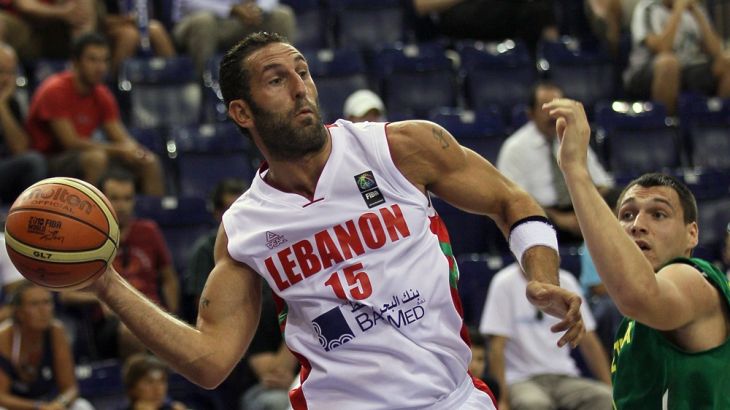
Time Out: Lebanon’s Golden Age of Basketball
After the civil war, the basketball court became a new battleground of sectarian divisions between Lebanon’s top teams.
Filmmaker: Ahmad Ghossein
After the end of Lebanon’s civil war, basketball grew in popularity, and from the mid-1990s to 2004, two clubs, Al Riyadi and Al Hekmeh, fought out an unsporting sectarian battle – attracting enormous support and achieving unprecedented playing success.
Keep reading
list of 4 itemsThe world cannot turn its back on Sudan and its neighbours any longer
Russia-Ukraine war: List of key events, day 784
Iraq’s dangerous balancing act between Iran and the US
Media and advertising mogul Antoine Choueiri, known as the grandfather of Lebanese basketball, created the basketball franchise in Lebanon as a way of trying to raise morale in a country coming out of war.
“He [Antoine] had a keen sense for how to create a product and he saw sport as an opportunity. The Lebanese love sports. They love new things … so he turned to basketball and a club called Al Hekmeh. The reasons could be territorial or sectarian. He turned Al Hekmeh into an icon,” says Pierre Kakhia, president of the Lebanese Basketball Federation.
Al Hekmeh was supported by Christian fans, while Al Riyadi was supported by the Muslim community. Their rivalry was almost on a par with El Clasico in Spanish football or Rangers and Celtic in Scotland.
“Every time the two clubs played, Lebanon was in a state of emergency,” says Kakhia. “People would stay at home. It was difficult to get to nearby areas.”
During games, fans cursed star players of the opposing team. So we became competitors... Al Riyadi fans read the Quran during games. Al Hekmeh fans brought crucifixes. We became sectarian symbols. We can't deny this. Al Riyadi was Muslim. Al Hekmeh was Christian.
At one point, Al Hekmeh fans waved crosses at Al Riyadi fans holding the Quran. Player violence broke out and the fans joined in all-out fights on the court and in the stands.
According to Walid Domiati, Al Riyadi’s captain at the time, “both Al Hekmeh and Al Riyadi had two symbols, two star players, Elie and Walid. People supported one or the other so the teams promoted the image of their respective stars.”
“During games, fans cursed star players of the opposing team. So we became competitors … Al Riyadi fans read the Quran during games. Al Hekmeh fans brought crucifixes. We became sectarian symbols. We can’t deny this. Al Riyadi was Muslim. Al Hekmeh was Christian,” says Domiati.
Elie Mchantaf, the former Al Hekmeh captain, says that “politics definitely played a big role. We had a specific role to play. Christian leaders, like Samir Geagea, were in prison and General Aoun was in exile. So Al Hekmeh became an outlet and source of hope for Christians. The club and I had a specific role to play.”
Al Hekmeh won international honours when they lifted the Asia Cup in successive years. But after the two biggest clubs had reached such heights, a shift began to occur in Lebanese basketball for a number of reasons.
Funding became a problem, as Antoine Choueiri gradually became disenchanted with events off the court, increasing sectarianism and party political intervention. By 2004, Choueiri had completely pulled out of Al Hekmeh and this had a ripple effect across the sport.
Some argue that basketball gradually became a tool in the hands of political parties, causing players and financiers and even fans to withdraw.
“At that time they focused on the stage they lived on”, explains Mchantaf. “Today, they only focus only first class tournaments, not minor ones. Then, Al Hekmeh got a lot of exposure and promotions in TV. They didn’t have a plan in case financier X or Y left. But that’s what happened.”
As Antoine Choueiri pulled out and others followed suit, Basketball’s golden era began to fade. The 2005 assassination of Prime Minister Rafik Hariri brought about a further decline in the game.
Now, as Lebanon’s long-awaited elections approach in May 2018, this film looks at the political, social and religious life of the country through the prism of its once dominant sport.
|
|